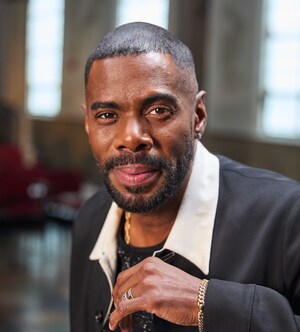W.K. Kellogg Foundation announces 14 Truth, Racial Healing & Transformation engagements throughout the United States
Communities seek to uncover truth, bridge divides
BATTLE CREEK, Mich., June 28, 2017 /PRNewswire-USNewswire/ -- The W.K. Kellogg Foundation (WKKF) today announced grant support to 14 places throughout the country where its co-designed, trailblazing Truth, Racial Healing & Transformation (TRHT) framework will be implemented.
TRHT is a comprehensive, national and community-based process to plan for and bring about transformational and sustainable change, and to address the historic and contemporary effects of racism. It was launched in January 2016 with a year-long design phase and builds upon and complements the foundation's decades-long commitment to advancing racial healing and racial equity throughout the U. S.
"TRHT's purpose is to improve our ability as communities and as a country to see ourselves in each other, so that we can share a more equitable future for all children to thrive," said La June Montgomery Tabron, president and CEO of the Kellogg Foundation. "This work is essential because we must bridge the divides in our country. Now more than ever, we must all act in big and small ways to help people heal from the effects of racism."
With TRHT moving into its implementation phase, WKKF is awarding 10 grants, for nearly $24 million, over the next two-to-five years to help diverse, multi-sector coalitions in 14 places implement the foundation's TRHT process and framework, co-developed in the 2016 design phase.
A primary focus will be jettisoning the deeply held, and often unconscious beliefs that undergird racism – the main one being the belief in a hierarchy of human value. This belief, which has fueled racism and conscious and unconscious bias throughout American culture, is the perception of a person's or group's inferiority or superiority based on physical characteristics, race, ethnicity or place of origin.
"The Kellogg Foundation has a strong belief in the inherent capacity of people to effect change in their lives," Tabron said. "We are very optimistic that these leaders and communities will do the hard work needed to succeed in the transformation they seek."
TRHT Places
The following places and organizations will receive funding, serving as a centralized coordinator for each of the efforts: (1) State of Alaska (First Alaskans Institute); (2) Baton Rouge and (3) New Orleans, Louisiana (Foundation for Louisiana); (4) Buffalo, New York (Community Foundation for Greater Buffalo); (5) Greater Chicago, Illinois (Woods Fund of Chicago/The Chicago Community Trust); (6) Dallas, Texas (Communities Foundation of Texas); (7) Los Angeles, California (Southern California Grantmakers); (8) Richmond, Virginia (Initiatives of Change, Inc.); (9) Selma, Alabama (Black Belt Community Foundation); (10) Saint Paul, Minnesota (Saint Paul Foundation); (11) Battle Creek, (12) Flint, (13) Kalamazoo and (14) Lansing, Michigan (Council of Michigan Foundations).
TRHT Framework
Since its initiation in January 2016, WKKF worked with 176 leaders and scholars as representatives of more than 144 national TRHT individual and organizational partners, with a reach of more than 289 million people, to develop a framework and implementation guide for how communities could implement a TRHT process in a place – either a city, a region, a state – or a sector.
Using the framework as a guide, TRHT will create local, regional and national transformational change in the areas of:
- Narrative Change – examining how to create and distribute new complex and complete narratives in entertainment, journalism, digital and social media, school curricula, museums, monuments and parks and in the way we communicate that can influence people's perspectives, perceptions and behaviors about and toward one another so that we can work more effectively and productively toward community-based change.
- Racial Healing and Relationship Building – focusing on ways for all of us to heal from the wounds of the past, to build mutually respectful relationships across racial and ethnic lines that honor and value each person's humanity, and to build trusting intergenerational and diverse community relationships that better reflect our common humanity.
- Separation – examining and finding ways to address segregation, colonization and concentrated poverty in neighborhoods to ultimately ensure equitable access to health, education and jobs.
- Law– reviewing discriminatory civil and criminal laws and the public policies that come from them and recommending solutions that will produce a just application of the law.
- Economy– studying structured inequality and barriers to economic opportunities and recommending approaches that can create an equitable society.
Each of the TRHT Places recruited a diverse core group of participants that represent multiple sectors – philanthropy, elected officials, faith, business, healing practitioners, grassroots activists, youth, media and others. Each core group co-developed a local implementation plan that will include all communities in America (American Indian, Alaska Native, Asian American, Pacific Islander, Latino, African American, Arab American and White); recognize the need for both racial healing and racial equity; and create local, regional and national infrastructures that sustain healing and structural change efforts across the country.
The TRHT places are acknowledging the historic and contemporary impacts of racism in their community and will forge pathways to heal, end structural racism and expand opportunities, especially for vulnerable children and their families. Efforts are also being supported by other local, regional and national funders in these places.
Moreover, Tabron noted that the WKKF grants will be used for on-the-ground projects as well as creating local growth funds where Kellogg Foundation investments can combine with funding from other sources to sustain comprehensive, community-designed approaches for the long-term. "WKKF is helping support local leaders and residents to co-design and implement what is best for their community and other funders are listening and offering their support," she said. "The TRHT works from the ground up and it's exciting that communities are driving it."
TRHT Implementation
The 14 TRHT places developed concept papers for their communities that document their plans for engagement.
"The concept papers and plans demonstrate the commitment and care of so many people in these places and communities. They show an unparalleled depth of understanding about racism and its effects, and tenacious and creative ideas to take action to jettison the belief in a hierarchy of human value," said Dr. Gail C. Christopher, senior advisor and vice president for TRHT at the Kellogg Foundation. "We are seeing history being made as people come together to tell the truth, heal and transform their communities."
Here are a few examples of intentions from the TRHT places:
- In Minnesota, the police shooting of Philando Castile in suburban Falcon Heights unmasked the racial bias in the Twin Cities area. The Saint Paul Foundation wrote that, like elsewhere, "the wounds of racism run deep and are intricately woven into the backbone of our everyday lives. The historic trauma of racism affects our children in school, colleagues at work, and the way we interact – or don't – with our neighbors. We welcome the opportunity to pursue a deep, holistic approach to achieving racial equity which honors and builds on the work of our partners and pushes ourselves and our organizations forward to support racial healing and transformative equity efforts in new ways and with fresh energy and perspectives."
- In Greater Chicago, the Woods Fund of Chicago wrote that "people power" is the region's greatest asset. "Community organizing, the power of people and its neighborhood institutions are the roots of the vibrancy of this region," they wrote. "The region's artists contribute to the vibrant heartbeat and amplify diverse voices and stories. The business and civic community is robust and involved, and many public-sector leaders authentically represent the needs of their constituency. Finally, the foundation community has demonstrated its willingness to confront racial equity and work collaboratively on a variety of fronts. This region's TRHT team will draw on its 'people power' to fuel the work."
- In Buffalo, New York, the Community Foundation for Greater Buffalo wrote that the "fundamental purpose" of their TRHT engagement is to advance a shared agenda that eliminates institutional racism. "This will be accomplished through data-driven systematic change that results in community transformation with a focus on civic, faith, government, education and business sectors … Because many of the barriers to achieving fair opportunity for all are embedded in past decisions and public policies, moving forward requires hard work that identifies how these policies continue to shape reality today and how they can be corrected to transform to a new, equitable reality."
Christopher said the TRHT participants are committed to uprooting the conscious and unconscious belief in a hierarchy of human value that limits equal access to quality education, fulfilling employment, safe neighborhoods and equal housing opportunities. "Unless the central belief system that fuels racial, ethnic and place of origin inequities is challenged and changed," she said, "societal progress cannot be sustained over time."
Learn more about TRHT at http://healourcommunities.org.
About the W.K. Kellogg Foundation
The W.K. Kellogg Foundation (WKKF), founded in 1930 as an independent, private foundation by breakfast cereal pioneer Will Keith Kellogg, is among the largest philanthropic foundations in the United States. Guided by the belief that all children should have an equal opportunity to thrive, WKKF works with communities to create conditions for vulnerable children so they can realize their full potential in school, work and life.
The Kellogg Foundation is based in Battle Creek, Michigan and works throughout the United States and internationally, as well as with sovereign tribes. Special emphasis is paid to priority places where there are high concentrations of poverty and where children face significant barriers to success. WKKF priority places in the U.S. are in Michigan, Mississippi, New Mexico and New Orleans; and internationally, are in Mexico and Haiti. To learn more, visit www.wkkf.org or follow WKKF on twitter at @wk_kellogg_fdn.
SOURCE W.K. Kellogg Foundation
Related Links
WANT YOUR COMPANY'S NEWS FEATURED ON PRNEWSWIRE.COM?
Newsrooms &
Influencers
Digital Media
Outlets
Journalists
Opted In





Share this article